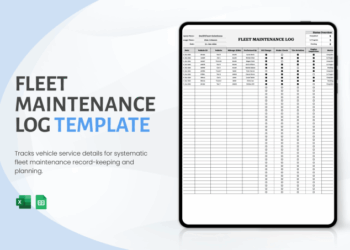Embark on a journey into the realm of real brokerage, where the intricacies of this industry come to life through vivid descriptions and insightful analysis.
Delve into the nuances of different types of real brokerages, uncovering the unique services they offer and the diverse markets they cater to.
What is a real brokerage?
In the real estate industry, a real brokerage refers to a firm or company that serves as an intermediary between buyers and sellers of real estate properties. Real brokerages typically employ licensed real estate agents who facilitate property transactions on behalf of their clients.
Role and Functions of a Real Brokerage
A real brokerage plays a crucial role in the real estate market by providing services such as property listings, market analysis, property valuation, and negotiation assistance. These firms act as a bridge between buyers and sellers, helping to streamline the buying and selling process.
- Real brokerages assist clients in finding suitable properties that meet their specific requirements.
- They provide guidance on pricing strategies and market trends to help clients make informed decisions.
- Real estate agents at brokerages handle negotiations between buyers and sellers to secure the best deals for their clients.
Examples of Real Brokerage Firms and Their Operations
Some well-known real brokerage firms include RE/MAX, Keller Williams Realty, and Coldwell Banker. These firms have a vast network of agents who specialize in different types of properties and geographical areas.
RE/MAX, for example, is known for its global presence and extensive marketing strategies to attract buyers and sellers.
These real brokerage firms leverage technology, market research, and industry expertise to provide comprehensive services to their clients. Whether it's residential, commercial, or industrial properties, real brokerages are equipped to handle a wide range of real estate transactions.
Types of real brokerages
When it comes to real estate brokerages, there are various types that cater to different needs and preferences of clients. These include traditional, online, discount, and luxury brokerages.
Traditional Brokerages
Traditional brokerages are the most common type of real estate firms that operate with physical offices and agents who work directly with clients. They provide personalized service and guidance throughout the buying or selling process. Clients who prefer face-to-face interactions and a more hands-on approach often choose traditional brokerages.
Online Brokerages
Online brokerages operate entirely on digital platforms, offering services such as virtual tours, online listings, and electronic signatures. They are suitable for clients who prefer a more convenient and technology-driven approach to real estate transactions. Online brokerages often have lower overhead costs, which can result in savings for clients.
Discount Brokerages
Discount brokerages offer reduced commission rates compared to traditional brokerages. They provide basic services at a lower cost, appealing to clients who are looking to save money on real estate transactions. However, the level of service and support may vary compared to traditional brokerages.
Luxury Brokerages
Luxury brokerages cater to high-end properties and clients who require specialized services and expertise in luxury real estate transactions. They often have exclusive listings, professional photography, and marketing strategies tailored to luxury properties
. Clients looking for a premium experience and attention to detail typically choose luxury brokerages.Each type of real brokerage serves a specific target market based on the unique needs and preferences of clients.
Understanding the differences between traditional, online, discount, and luxury brokerages can help clients make informed decisions when choosing a real estate firm.
When looking for a reputable real brokerage, there are certain key characteristics that you should consider. These qualities can help you identify a trustworthy and reliable brokerage that will provide you with exceptional service.
Customer service is a vital aspect of a successful real brokerage. A reputable brokerage will prioritize customer satisfaction and go above and beyond to meet the needs of their clients. This includes being responsive, attentive, and transparent in all communications.
Providing exceptional customer service can help build trust and long-lasting relationships with clients.
- Timely responses to inquiries and concerns
- Clear and transparent communication throughout the buying or selling process
- Personalized attention to individual client needs
- Going the extra mile to ensure client satisfaction
There are several real brokerages known for their exceptional service and commitment to customer satisfaction. One such example is Keller Williams Realty, which has a reputation for its agent training programs and strong emphasis on client care. Another example is RE/MAX, known for its global network of experienced agents and dedication to excellence in service delivery.
- Keller Williams Realty: Offers extensive training for agents and a client-focused approach
- RE/MAX: Global network of experienced agents and commitment to excellence
Technology and real brokerages
Technology plays a crucial role in shaping the operations of modern real brokerages. From marketing to communication and transactions, real estate companies leverage various technological tools to streamline processes and enhance customer experience.
Impact of Technology on Real Brokerages
Real brokerages have transformed the way they operate with the integration of technology. Here are some key areas where technology has made a significant impact:
- Automation of tasks such as property listings, scheduling showings, and generating reports, saving time and increasing efficiency.
- Access to real-time data and analytics for informed decision-making in pricing strategies and market trends.
- Enhanced communication with clients through digital channels like emails, social media, and video calls.
Technological Solutions in Real Brokerages
Real estate companies are adopting innovative technological solutions to stay competitive and provide better services. Some examples include:
- Virtual reality (VR) tours for remote property viewing, offering immersive experiences to potential buyers.
- Customer relationship management (CRM) software to manage client interactions, track leads, and personalize marketing campaigns.
- Blockchain technology for secure and transparent real estate transactions, reducing the risk of fraud and ensuring data integrity.
Last Point
In conclusion, real brokerage is a dynamic field shaped by evolving technology, unwavering customer service, and a commitment to excellence.
Top FAQs
What sets a real brokerage apart from other real estate entities?
A real brokerage acts as an intermediary between buyers and sellers, facilitating transactions and providing valuable market insights.
How important is customer service for a reputable real brokerage?
Customer service is paramount for a reputable real brokerage, as it enhances client satisfaction and builds long-term relationships.
Can you provide examples of innovative technological solutions used by real brokerages?
Real brokerages leverage technologies like virtual tours, AI-powered analytics, and online transaction platforms to streamline operations and enhance customer experience.














